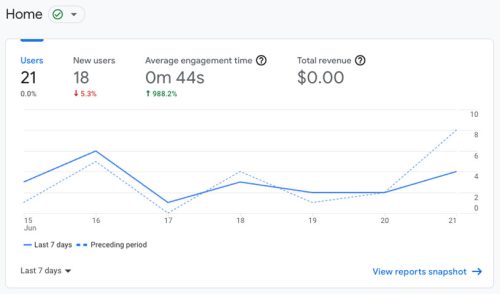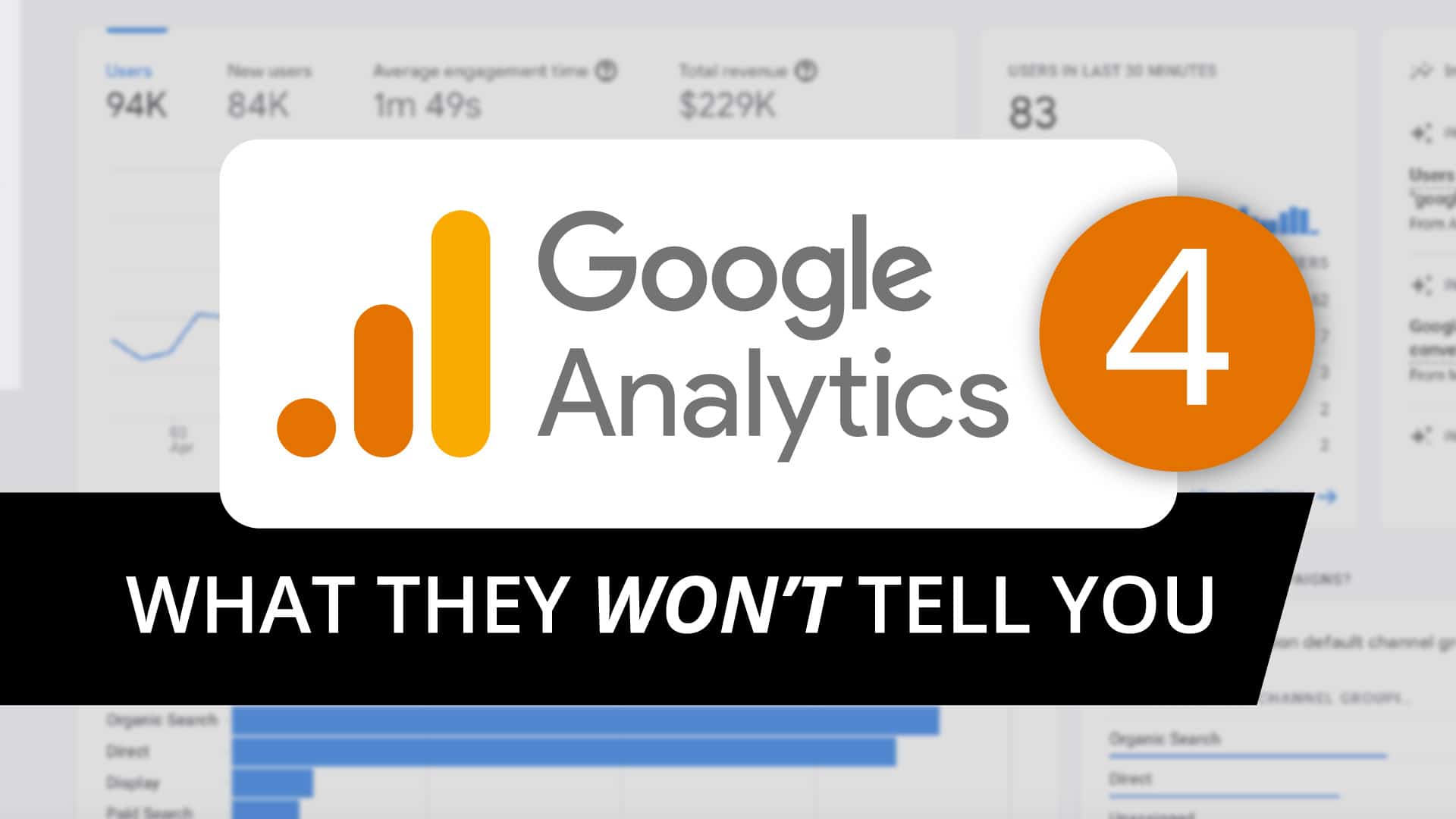Google Analytics 4 – What They Won’t Tell You
Google Analytics has long been the go-to for tracking website and app data, and over the years, the platform has seen numerous updates. Recently, Google has announced they will be sunsetting Universal Analytics (UA) in July 2023.
This move comes as no surprise as Google pushes for the use of Google Analytics 4 (GA4), which has been available since late 2020. The switch to GA4 will be mandatory, so it’s in your best interest to begin upgrading your properties and getting familiar with GA4 before it’s too late.
How is Google Analytics 4 Different from Universal Analytics?
The main difference between GA4 and UA is the measurement models. Google Analytics 4 uses an “event-based” model to gather data, while UA and older versions of Google Analytics relied on sessions. An event is any action a user takes on your site, from loading a page to downloading a form.
This switch from a session-based model to an event-based model may seem small on the surface; however, the change is significant. The event-based model is supposed to allow for easier analysis of users for marketers by grouping users according to the actions on your site.
The plus side of the event-based model is that it allows for easy groupings of users. UA’s session-based model nested events under categories and actions, while GA4’s model allows for a more flexible approach to sorting and grouping data. It seems like the new attribution model is better for marketers but will take some getting used to.
 Another big change with GA4 is the lack of user IP addresses. Google says, “Google Analytics 4 is designed with privacy at its core to provide a better experience for both our customers and their users.”
Another big change with GA4 is the lack of user IP addresses. Google says, “Google Analytics 4 is designed with privacy at its core to provide a better experience for both our customers and their users.”
….yeah, okay, Google. This push for security and privacy likely isn’t coming from Google’s respect for its users. It’s more likely they are feeling the pressure from the EU and the need to comply with General Data Protection Regulation (GDPR). After all, Google is no stranger to the EU and their fight for an equal internet playing field.
On the plus side, GA4’s new user interface (UI) allows for easy editing and tracking of events. This means that events like clicks and page scrolls can be configured within GA4, whereas in UA you’d have to plug in a code snippet to your website. This, combined with cross-domain tracking, is a big step up from UA.
GA4 & Machine Learning
One of the many benefits of GA4 being touted is the use of machine learning. Google’s AI will be able to predict future earnings and generate “sophisticated insights.” Sounds great, right?
On its surface, it’s not a particularly bad idea. Leveraging Google’s technology to grow your business by grouping users on their likeliness to convert is a smart move.
The problem? Your website will need at least 1,000 returning visitors who complete an event and 1,000 returning visitors who don’t complete an event in a seven-day period.
That’s 2,000 returning users a week.
*EYEROLL*
With 55% of most businesses getting less than 500 website visits a month, that’s an unreachable goal for most small to mid-size businesses. Meaning the biggest advantage GA4 offers is something that only large businesses will get. In addition, if your user count falls below those thresholds, your predictive insights may become unavailable.
*EVEN MORE DRAMATIC EYEROLL*
So, in short, if you’re one of the businesses that gets over 2,000 returning visitors a week, GA4’s machine learning and predictive insights are a great tool for you. You can use the insights to grow your business by analyzing the journey of users that make purchases.
But…if you’re in the majority, and your numbers fall below that threshold, you’re S.O.L. as far as machine learning. So you’ll just have to rely on your own brain to create insights and pay attention to the user journey.
Preparing for Google Analytics 4
Like it or not, Google Analytics 4 is coming. And there’s nothing you can do about it.
…well, except find a new platform. But you’ll be hard-pressed to find a free solution as powerful as GA4. Even with its shortfalls, Google Analytics is still the reigning champ in this field.
So what do we do, Mr. Barnes?
Prepare!
With Universal Analytics set to be put down in July 2023 and all data removed “at least six months” after, it’s a good idea to prepare now. Upgrading your existing analytics properties to GA4 by July of this year (2022) will allow you to accrue a year’s worth of valuable data.
You should also plan to export historical reports and data from UA you deem necessary during this process. Google has made it clear that they will be deleting data from UA, although they haven’t given a concrete timeline.

The Challenge for Business Owners with GA4
 Many, if not most, of the people who use Google Analytics aren’t SEO experts or web analysts. They are business owners who haven’t had hours of training in SEO and analytics.
Many, if not most, of the people who use Google Analytics aren’t SEO experts or web analysts. They are business owners who haven’t had hours of training in SEO and analytics.
Because of this, the backlash against GA4 seems to be mounting. Many business owners are looking at the new user interface and measurement model and struggling to grasp its complexity in a short amount of time. If a business owner has hours to dedicate to learning GA4 and its intricacies, it can be a powerful tool.
But that’s the problem. It takes time, a valuable resource for business owners, and the only one we can’t get back.
Whether it’s help with analysis and building reports through Google Analytics or another web analytics platform, you can trust the experts at Catapult Creative Media. Our experienced team lets you focus on your business while we stay on top of changes to Google Analytics and deliver valuable insights that help your business grow.
Devin Barnes is a Data Analyst at Catapult Creative Media. He is a graduate of Southeastern Louisiana University with a Bachelor’s Degree in General Studies focusing on Marketing and Music. When Devin’s not working, he enjoys playing original music and spending time with his dogs.
Work with Catapult Creative Media Inc. Catapult Creative Media Inc. is a digital marketing and design agency serving clients over the United States but is proud to call Baton Rouge, Louisiana home. Founded in 2007, Catapult provides digital, social and mobile marketing solutions backed by relevant strategy and measurable results. Catapult works the web to their clients’ advantage, launching them to their next level of success.



